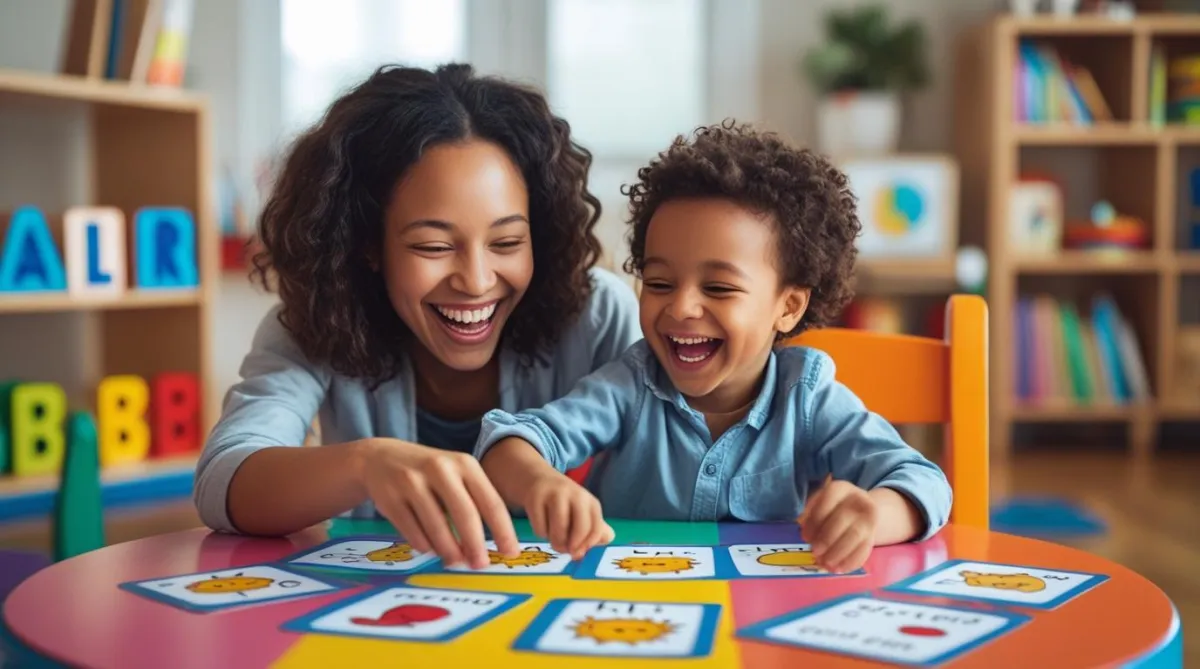
15 Fun Rhyming Games to Boost Your Child’s Early Literacy

15 Fun Rhyming Games to Boost Your Child’s Early Literacy
When it comes to preparing children for reading success, one of the most powerful — and often overlooked — tools is rhyming.
Rhyming games are fun, free, and can be played anywhere, but the benefits go far beyond giggles and silly wordplay.
In fact, rhyming helps children:
Recognize sound patterns in words.
Build a strong vocabulary.
Develop listening and memory skills.
Lay the foundation for phonics and reading comprehension.
At Bullmight, we believe learning should be playful — and these rhyming activities make that possible.
Here are 15 rhyming games you can try at home, in the car, or even while waiting in line.
1. Rhyme Hunt
Look around the house and find objects that rhyme. Example: clock–sock, chair–bear. This simple game sharpens observation skills and builds sound awareness.
2. Silly Rhyme Race
Set a 1-minute timer and list as many rhymes as possible for a chosen word. Great for boosting vocabulary and quick thinking.
3. Story Swap
Read a favorite story but replace certain words with rhymes. Kids will love the silly twist, and it helps them hear how changing one word can change the story.
4. Rhyming Relay
In a group, each person adds a rhyming word to the list. Continue until someone can’t think of one. Perfect for listening and memory skills.
5. Sing the Rhyme
Swap words in a nursery rhyme with new rhymes. Not only does it get laughs, but it also reinforces rhythm and sound recognition.
6. Flashcard Flip
Flip a flashcard with a word and think of as many rhymes as you can. Perfect for early reading and phonics practice.
7. Outdoor Rhyme Walk
While walking, name objects you see and rhyme them: tree–bee, rock–sock. It’s an active way to boost vocabulary.
8. Mystery Rhyme Bag
Put random items in a bag. Pull one out and think of rhymes for its name. Encourages tactile learning and creativity.
9. Rhyme Match
Match cards with rhyming words. A great way to strengthen memory and word recognition.
10. Make-Believe Rhymes
Encourage your child to invent silly, made-up words that rhyme. Great for imagination and sound play.
11. Partner Rhyme Toss
Toss a ball back and forth, saying a rhyming word each time you catch it. Combines movement with learning.
12. Picture Rhyme Match
Match pictures that rhyme, like cat–hat. Ideal for younger kids who can’t read yet.
13. Rhyming Treasure Hunt
Hide objects around the house and give rhyming clues. “I rhyme with chair, you’ll find me under there!”
14. What’s the Next Rhyme?
Say two rhyming words and have your child think of the third. This builds creative thinking.
15. Rhyme Chain
Start with one word and keep adding rhymes to make a long chain. Perfect for memory and sequencing skills.
Why Rhyming Matters
Rhyming isn’t just a fun game — it’s an essential part of phonological awareness, a key predictor of early reading success. By playing these games regularly, you’re giving your child the tools they need to become confident, enthusiastic readers.
The best part? Rhyming can happen anywhere — no screens, no fancy materials, just your voice and your imagination.
